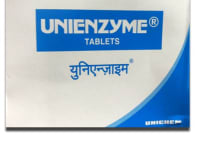NOTICE: unsafe with : Alcohol
USED FOR:
Bacterial infections
COMPOSITION:
Cefixime (1000mg)
Therapeutic Uses:
anti infectives

CAUTION

PROBABLY SAFE
Quix 1000mg Injection is probably safe to use during pregnancy.Animal studies have shown low or no adverse effect on the foetus, however, there are limited human studies. Please consult your doctor.

SAFE
Quix 1000mg Injection is safe to use during lactation. Human studies have shown that either the drug does not pass into the breastmilk in significant amount or is not expected to cause toxicity to the baby.Avoid prolonged use of Quix 1000mg Injection, since it may have possible effects such as rash and diarrhea.

SAFE
Quix 1000mg Injection does not usually affect your ability to drive.

CAUTION
Quix 1000mg Injection should be used with caution in patients with kidney disease. Dose adjustment of Quix 1000mg Injection may be needed. Please consult your doctor.

CAUTION
Quix 1000mg Injection should be used with caution in patients with liver disease. Dose adjustment of Quix 1000mg Injection may be needed. Please consult your doctor.
Uses of Quix Injection
Quix 1000mg Injection is used in the treatment of bacterial infectionsIt is used for short-term treatment of bacterial infections of urinary tract, skin and soft-tissue, ear, bone, blood, abdomen, genital and lungs (pneumonia). It is also used to prevent infections after surgery.
How to use Quix Injection
Your doctor or nurse will give you this medicine. Kindly do not self administer.
How Quix Injection works
Quix 1000mg Injection is an antibiotic. It works by preventing the formation of the bacterial protective covering which is essential for the survival of bacteria in the human body.
Common Nausea, Diarrhoea, Allergic reaction.
Expert advice for Quix Injection
Your doctor has prescribed Quix to cure your infection and improve symptoms. Do not skip any doses and finish the full course of treatment even if you feel better. Discontinue Quix and inform your doctor immediately if you get a rash, itchy skin, swelling of face and mouth, or have difficulty in breathing. Diarrhea may occur as a side effect but should stop when your course is complete. Inform your doctor if it doesn't stop or if you find blood in your stools. If you're on blood thinners, Quix can interact with your medications and increase your bleeding tendencies.
Q. What is Quix and what is it used for?
Quix is a cephalosporin antibiotic used for treating many infections, for eg: infections of the ear, throat (e.g. tonsillitis, pharyngitis), chest and lungs (e.g. bronchitis, pneumonia) and urinary tract (e.g. cystitis and kidney infections).
Q. Is Quix used for diarrhea?
Quix has not been indicated for the treatment of diarrhea. Please talk to your doctor if you have diarrhea before taking any antibiotics.
Q. Is Quix a cephalosporin?
Yes, Quix belongs to a group of antibiotics called 'cephalosporins'.
Q. Is Quix safe for infants?
Safety of Quix in children less than 6 months of age (includes premature and newborn infants) has not been established. Please consult your doctor before starting any antibiotics in children.
Q. Is Quix a penicillin?
Quix is not a penicillin. It belongs to a different class of medicines known as cephalosporin and it works in a similar way as penicillins. However, they are different antibiotics. Please consult your doctor regarding their use.
Q. Does Quix cause diarrhea?
Diarrhea is a common side effect of Quix. Diarrhea has been more commonly associated with higher doses. Stop the medicine if you have severe watery diarrhea that will not stop and you are feeling weak and have a fever. immediately consult your doctor.
Q. Does Quix cause constipation?
Constipation has not been reported as a side effect with Quix. Please consult your doctor in case you experience constipation while taking Quix.
Q. Does Quix cure chlamydia?
Quix is not effective against chlamydia infections, so, it is not used for its treatment. Please consult your doctor if you have been diagnosed with a chlamydial infection.
Q. Does Quix contain penicillin?
Quix is a cephalosporin which has an action similar to penicillins but it does not contain any penicillin.
Q. Does Quix cover pseudomonas?
No, Quix is not active against pseudomonas. Most strains of pseudomonas are resistant to Quix. Please consult your doctor if you have pseudomonas infections for the appropriate antibiotic treatment.
Q. Does Quix contain sulfur?
No, Quix does not contain sulfur. Please check the package leaflet (patient information leaflet) before using any medicine for its contents.
Q. Does Quix cure syphilis?
Quix is not active against the bacteria (Treponema pallidum) which causes syphilis. So, it is not used for the treatment of syphilis. Please consult your doctor if you have signs and symptoms of syphilis.
Q. Does Quix cure gonorrhea?
Quix can be used to treat uncomplicated gonorrhea caused by Neisseria gonorrhoeae (both penicillinase and non-penicillinase producing bacteria). However, always talk to your doctor if you have any infection as it should be diagnosed properly by a doctor before the start of antibiotics. Never take antibiotics yourself.
Q. Does Quix treat typhoid?
Quix is not indicated for the treatment of typhoid by the government regulatory authorities. However, Indian Academy of Pediatrics recommend the use of Quix in children for uncomplicated typhoid fever. It is hence, advisable that you must take the antibiotics for typhoid fever only when it is recommended by your doctor. Do not take antibiotics yourself.
Q. Does Quix affect birth control?
There is no evidence of cefexime affecting birth control (contraception). However, interactions may occur and Quix may affect the action of birth control pills. Please consult your doctor to confirm whether you require a extra birth control measure while taking Quix.
Q. Can I take Quix with azithromycin?
No interactions have been clinically observed between Quix and azithromycin. However, interactions may occur. Always consult with your doctor before taking two medicines together.
Q. Can I take Quix and doxycycline together?
No interactions have been clinically observed between Quix and doxycycline. However, interactions may occur. Always consult with your doctor before taking two medicines together.
Q. Can I take Quix with paracetamol?
No interactions have been clinically observed between Quix and paracetamol. However, interactions may occur. Always consult with your doctor before taking two medicines together.
Q. Can I take Quix with folic acid?
Folic acid can be taken with Quix as no drug-drug interactions have been clinically observed between them. However, interactions may occur. Please consult your doctor before taking the two medicines together.


 Quix 1000mg Injection
Quix 1000mg Injection  Bookmark
Bookmark





















